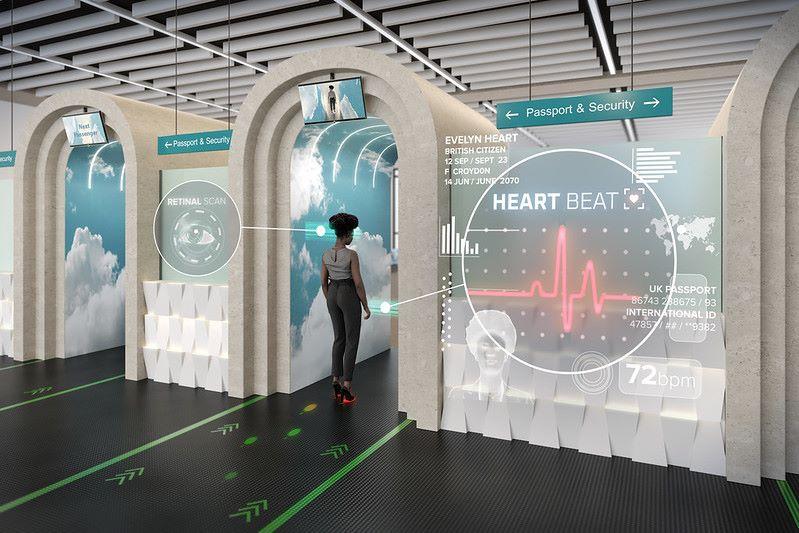
LONDON—UK LCC easyJet and a group of academics and futurists have predicted what travel will be like 50 years from now, including passengers using their unique heartbeat pattern instead of a passport.
The research predicts that, by 2070, 85% of passengers will travel to the airport using electric vertical-takeoff-and-landing (eVTOL) vehicles, which are already at an accelerated stage of development.
“Heartbeat and biometric passports will replace the traditional passport,” easyJet said. “Much like fingerprints and the retina, every person’s cardiac signature is unique. Passengers’ heartbeat signatures and biometric details will be logged on a global system in the same way finger-print scanning technology works today.”
This would be a further advancement of today’s contactless airport processes, which have seen increased use since the coronavirus pandemic.
EasyJet predicts that biometric technologies will also be used to upgrade the onboard experience, giving rise to aircraft seats that adapt to the shape, height, weight and temperature of the passengers. Aircraft-seat designers have already been experimenting with the use of biometric seat sensors over the past few years. Meanwhile, inflight entertainment will be beamed directly in front of passenger’s eyes using optoelectronics, replacing the need for onboard screens.
Other more fanciful predictions include 3D-printed clothing, made on demand and recycled at the end of the trip, removing the need for baggage.
The report was co-authored by experts from Birkbeck University, Cranfield University, consultancy firm Roland Berger, as well as futurists and design scientists.
“Aspects of how we holiday will be transformed beyond recognition,” Birkbeck College professor Birgitte Andersen said. “By the year 2070, the destinations we fly to, the type of accommodation we stay in, and the experiences we have, will have changed immeasurably.”
